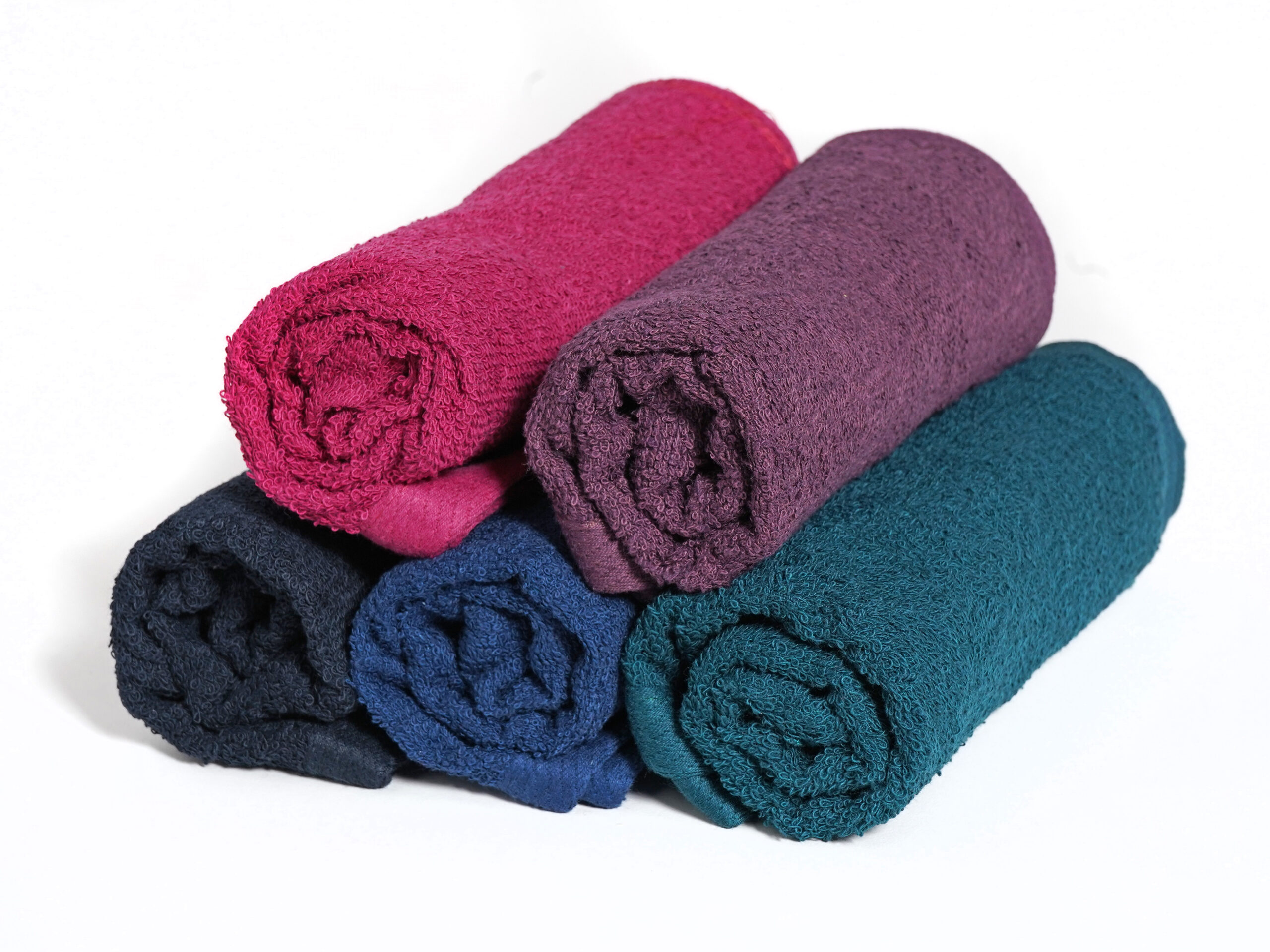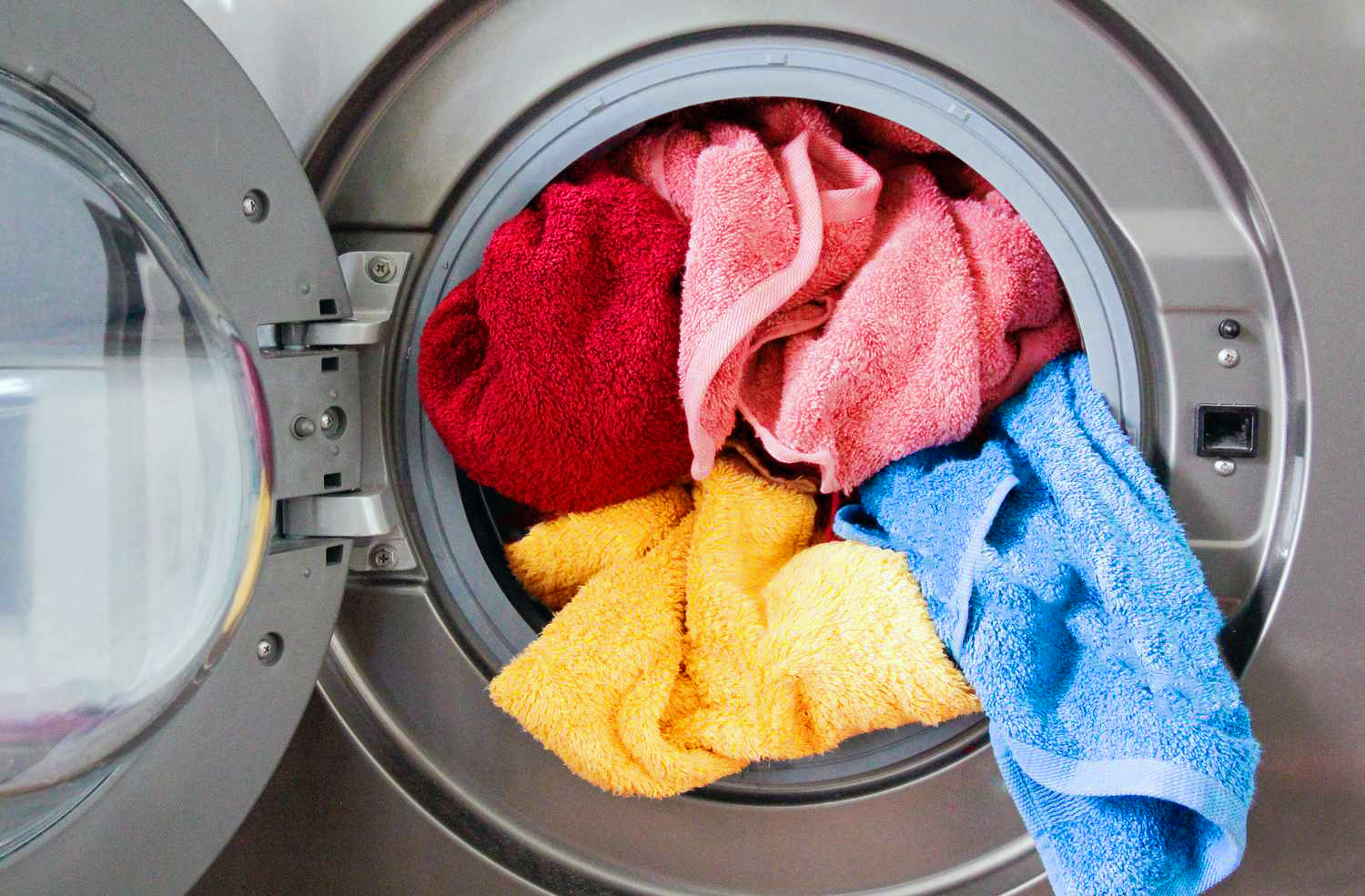Microfiber and cotton towels are high-performance cleaning materials. To get the best results and extend their lifespan, proper care is essential.
Every time towels are used, they collect dirt, oils, and potentially harmful bacteria. Improper cleaning not only shortens the life of the towel but also reduces its effectiveness. This is especially true for microfiber, which works on a microscopic level to lift and trap particles. Without correct laundering, these channels get clogged, and the cloth’s performance declines.
Microfiber and Rhino Rag MicroSpun Towels: Care and Maintenance
Microfiber and MicroSpun towels are made of synthetic fibers—typically a blend of polyester and polyamide—that are split many times finer than a human hair. These fibers attract and hold dust, grime, and microbes, making them extremely efficient. But they’re also sensitive to chemicals, heat, and lint.
Washing Microfiber/MicroSpun Towels
- Wash After Every Use: Microfiber towels should be laundered promptly after use to prevent contaminants from settling in the fibers. Delaying the wash allows particles to harden within the towel, hampering future cleaning performance and increasing the risk of cross-contamination.
- Wash Separately: Always wash microfiber items separately from cotton or lint-producing fabrics. Cotton sheds fibers that can get stuck in the microfiber weave, reducing its ability to trap dust and bacteria effectively. If the cotton fibers get hard, the transferred fiber can scratch surfaces when the microfiber is used.
- No Fabric Softener or Bleach: Fabric softeners coat the fibers and neutralize their natural static charge—the feature that allows microfiber to attract dust. Bleach can break down the synthetic fibers, significantly shortening the life of the product.
- Ideal Water Temperature and Detergents: Use warm water (around 120–140°F or 50–60°C) and a mild, non-solvent detergent. For commercial laundry, avoid extreme alkalinity (keep detergent pH below 10), and use a carefully programmed cycle for optimal results.Here’s an ideal commercial laundering cycle for microfiber, per industry best practices:
Flush (2x): 2 minutes at 120°F with high water level
Wash/Suds: 10 minutes at 140°F, low water level with non-solvent detergent
Rinses (3–4x): Gradually decrease temperature to 80°F and then cold
Dry: 10 minutes max at 140°F
- Drying Tips: Air drying is the preferred method, but if you must use a dryer, keep the heat low (no more than 140°F). High heat can deform microfiber’s synthetic structure. Always remove cloths immediately after the cycle to prevent overheating.

Special Considerations for Microfiber Mops
For commercial users handling microfiber mops:
- You can hand wash them with warm soapy water for light use.
- Instead of drying, consider adding disinfectant during the final rinse and sealing the damp mops in poly bags for transport.
- Pre-load mops with cleaning solutions by soaking them in chemicals 30 minutes before use. This provides ready-to-go sanitation without additional prep time.
Cotton Towels: Care and Maintenance
Cotton towels are naturally lightweight, absorbent, durable, and breathable. Cotton towels are called “terry” or “Turkish” towels due to their unique weaving technique and historical association with Turkish baths. The fabric used in these towels features loops created by a special weaving process.
Cotton towels are often used in car washes, vehicle detailing, healthcare, hospitality, and household settings for drying, polishing, and cleaning. While they’re more forgiving than microfiber, there are still some best practices to follow.
Washing Cotton Towels
- Wash in Warm Water: New cotton towels should be washed in hot water to increase the absorbency before using, but regularly used towels should be washed in warm water. Warm water helps break down oils and soils, but excessive heat can weaken the cotton fibers over time. Darker colored towels will need to be washed several times before the first use.
- Avoid Overloading Machines: Keep your load to about 85–90% of machine capacity. Overloading prevents towels from tumbling freely, resulting in ineffective cleaning and rinsing.
- Use Appropriate Detergents: Standard detergents work fine for cotton, but steer clear of those containing optical brighteners or harsh alkalis if you want to maintain the natural color and softness. Avoid bleach as it breaks down the fibers and cuts the life of the towel.
- For towels used at car washes, you can wash a few times a month with one cup of vinegar or ammonia without soap to strip wax out of the towels.
- Skip Fabric Softener for Cleaning Towels: While it might make bath towels feel soft, fabric softener leaves a residue that can reduce absorbency—something you don’t want in a towel that’s meant to dry or clean effectively.
- Rinse Thoroughly: Residual detergent or chemicals left in cotton fibers can cause skin irritation or interfere with absorbency. Ensure a complete rinse cycle is included in every load.
- Drying Tips: Tumble dry on medium heat. Cotton towels can handle more heat than microfiber but avoid high-heat settings as they can cause shrinkage and wear. A medium setting gives the best balance between drying time and fabric longevity.

Storage Tips for Microfiber and Cotton Towels
- Store in a Dry, Clean Place: Damp towels invite mold and mildew. Always store towels completely dry and in a ventilated area.
- Rotate Inventory: Use older stock before newer to prevent degradation while stored.
- Avoid Contaminants: Keep clean towels away from chemical storage areas or potential splash zones.
Taking care of your microfiber and cotton towels isn’t just about cleanliness—it’s about maximizing investment and maintaining hygiene standards. Whether you’re operating a commercial cleaning service, a healthcare facility, or simply trying to keep your home spotless, the right laundry routine makes all the difference.
Have a question about which towel is right for your needs or how to optimize your cleaning processes? Contact us today at info@brotex.com or 1-800-328-2282.


